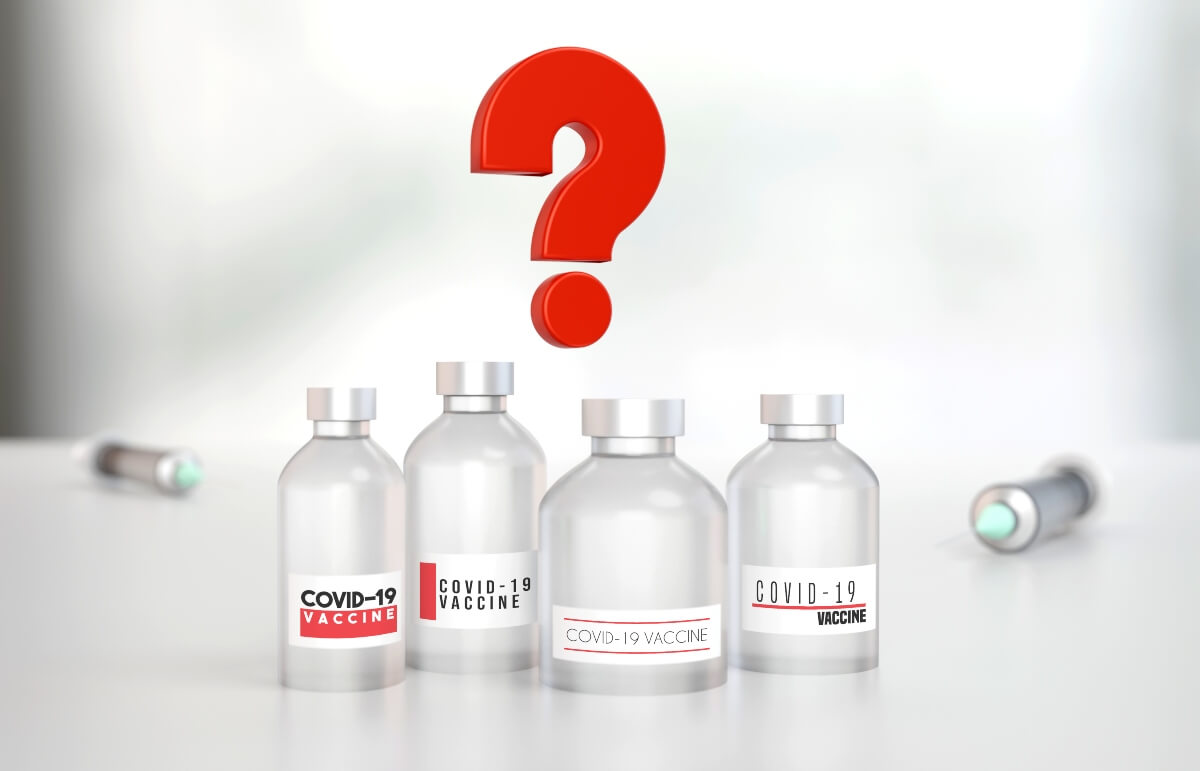<< Back
Why it Doesn’t Matter Which COVID-19 Vaccine You Get

February 05, 2021
It is perhaps the most often-heard question related to COVID-19 right now: Which vaccine should I get?
The answer is the same, no matter where you live: Whichever one you can get the soonest.
Keith Grant, Senior System Director for Infection Prevention at Hartford HealthCare: “The best vaccine is the one available in front of you.”
Five minute Listen:
Dr. Steven Valassis, Chair of Emergency Medicine at Hartford HealthCare’s St. Vincent’s Medical Center: “The name of the game right now is trying to get to herd immunity. In order to do that, we need to vaccinate as many people as we can.”
Colleen Teevan, System Pharmacy Clinical Manager at Hartford Healthcare: “The more people who are vaccinated, the more difficult it is for the virus to continue spreading and mutating. So whatever vaccine is available to you first, you should get!”
Both of the currently approved vaccines, Pfizer and Moderna, have 94 percent to 95 percent efficacy in preventing symptomatic COVID-19 infection. Both have also shown good results in preventing severe disease, Teevan said. “Both vaccines continue to be studied against the new variants that have been identified, and they are still considered to be effective.”
Johnson & Johnson’s COVID-19 vaccine is expected to be the third approved for U.S. rollout. The vaccine is currently in its Phase 3 clinical trials. Once approved, the company says they hope to have 100 million of the single dose vaccine available by April.
Valassis is optimistic.
“We’ve got two very successful vaccines right now that we are using,” he said. “Being able to get another vaccine, to get the population of this country vaccinated, is a big deal. This illness is very serious.”
Experts warn that the general public shouldn’t get wrapped up in comparing various vaccine efficacy rates. “Several other vaccines are still under development, including those made by Janssen, AstraZeneca, and Novavax,” said Teevan. “While the overall efficacy of these is a little bit lower than that of Pfizer or Moderna, they’ve still shown a good ability to prevent severe disease. This is important in keeping people out of the hospital.”
Valassis notes that while the Johnson & Johnson vaccine is reported to have 72 percent efficacy in the U.S. compared to 95 percent for Pfizer and Moderna vaccines, it’s still a good number.
“Being able to have 72 percent protection is still a big deal, I’d want to own that,” he said.
More resources and links:
For those who are eligible for the COVID vaccine
View current COVID stats and resources
Subscribe to the Hartford HealthCare podcast